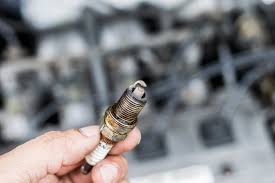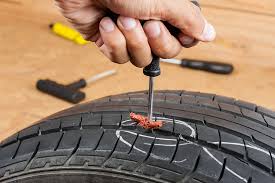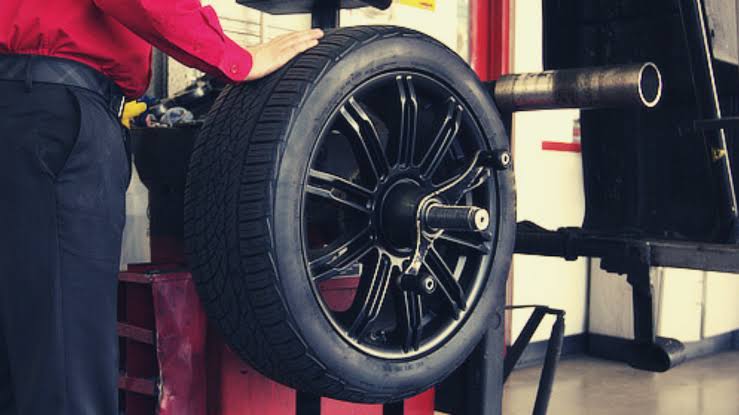Can Oil in Spark Plugs Cause Rough Idle?

A rough idle can be an indication of a variety of engine issues, and one of the potential culprits is oil in the spark plugs. If you’ve noticed that your engine is idling unevenly or stalling, oil in the spark plugs could very well be the cause. But how exactly does this happen, and what should you do about it? Let’s break it down.
Understanding the Role of Spark Plugs
Spark plugs play a critical role in the combustion process by igniting the air-fuel mixture in the engine’s cylinders. When a spark plug is functioning properly, it creates a spark that causes the fuel in the combustion chamber to ignite, powering the engine and keeping it running smoothly.
However, when oil enters the spark plug area, it can significantly interfere with the spark plug’s function, leading to problems like rough idling, engine misfires, and poor engine performance.
How Does Oil Get Into Spark Plugs?
There are a few reasons why oil might make its way into your spark plugs, and it’s typically related to underlying issues in the engine. Here are the most common causes:
1. Worn Valve Seals
Valve seals are responsible for preventing oil from leaking into the combustion chamber. If these seals wear out or become damaged, oil can seep into the spark plug wells, coating the spark plugs and causing performance issues.
2. Worn Piston Rings
Piston rings seal the gap between the piston and the cylinder wall, ensuring that combustion gases stay within the combustion chamber. When piston rings become worn, oil can leak past them and enter the combustion chamber. This can result in oil getting into the spark plugs.
3. Cracked Cylinder Head or Gasket
If the cylinder head or the head gasket cracks, it can allow oil to leak into areas where it shouldn’t be, including the spark plug wells. This can cause oil to accumulate on the spark plugs and lead to rough idling.
4. Overfilled Oil
An overfilled oil reservoir can lead to excess oil being pushed out of its designated space. In some cases, this excess oil can end up in the spark plug wells, which can create the same rough idle and misfire symptoms as if there were a more serious issue.
How Oil in Spark Plugs Causes Rough Idle
Now that we know how oil can get into spark plugs, let’s look at how this directly impacts engine performance and causes a rough idle:
1. Interferes with the Spark
Oil in the spark plug area can coat the spark plug electrodes, preventing them from sparking properly. If the spark plug can’t create a clean, reliable spark, the combustion process becomes inefficient, leading to rough idling and engine misfires. The engine may run unevenly, or it may stall because it’s not receiving consistent ignition.
2. Fouls the Spark Plug
Oil can cause a spark plug to foul, meaning it becomes coated with a thick layer of carbon deposits and oil residue. This buildup can stop the spark plug from functioning altogether, or it can make it work intermittently, further exacerbating rough idling and leading to poor engine performance.
3. Leads to Engine Misfires
Misfires are another potential consequence of oil-damaged spark plugs. When oil seeps into the spark plug wells, it can cause one or more cylinders to misfire. This can result in shaking or roughness at idle, as the engine isn’t firing on all cylinders.
4. Increased Emissions
A spark plug that’s covered in oil may not burn the air-fuel mixture properly, leading to an increase in emissions. This can trigger the Check Engine Light, and in some cases, result in failed emissions tests if your car is due for one.
Symptoms of Oil in Spark Plugs
If oil is in your spark plugs, you’ll likely experience several noticeable symptoms that can help you identify the problem. These may include:
- Rough idle: The engine may shake or vibrate more than usual, especially when stopped.
- Engine misfires: If one or more cylinders aren’t firing properly, you’ll experience hesitation or stalling.
- Decreased engine performance: Loss of power, acceleration problems, or sluggish performance can result from spark plug issues.
- Oil in the spark plug wells: If you remove the spark plugs and see oil pooling in the wells or on the plugs themselves, it’s a clear sign of oil leakage.
- Increased exhaust smoke: Burning oil can cause increased smoke from the exhaust, especially after starting the engine.
How to Fix Oil in Spark Plugs
If you suspect oil is affecting your spark plugs, it’s essential to address the root cause to prevent further damage and ensure smooth engine performance. Here’s what you can do:
1. Inspect and Replace the Spark Plugs
If the spark plugs are covered in oil or fouled, they should be replaced. This will ensure that your engine is firing correctly and that it can run smoothly again.
2. Check the Valve Seals and Piston Rings
If oil is leaking into the spark plug wells, the valve seals or piston rings might be worn. In such cases, you may need to have the valve seals or piston rings replaced, which can be a more involved repair that may require professional help.
3. Check for Overfilled Oil
If the oil level is too high, drain the excess oil to prevent it from reaching the spark plug wells. Ensure that the oil is at the correct level to prevent any future issues.
4. Fix Cracked Cylinder Head or Gasket
If there is a crack in the cylinder head or gasket, this needs to be addressed immediately by a professional mechanic. Cracked cylinder heads can lead to significant engine damage if left untreated.
Conclusion
In conclusion, oil in spark plugs can certainly cause rough idle and a host of other engine problems, including misfires, decreased performance, and increased emissions. The oil can interfere with the spark plug’s ability to ignite the air-fuel mixture properly, leading to rough idling and other noticeable symptoms. If you suspect this is the issue, it’s important to inspect your spark plugs and investigate the underlying cause, such as worn valve seals, piston rings, or other engine components.
Addressing the issue promptly can help prevent further damage to your engine and restore smooth performance. If you’re not comfortable diagnosing or fixing the issue yourself, it’s always a good idea to consult a mechanic to get your vehicle back in top shape.
Also Check:
• Will New Spark Plugs Make a Difference?






One Comment